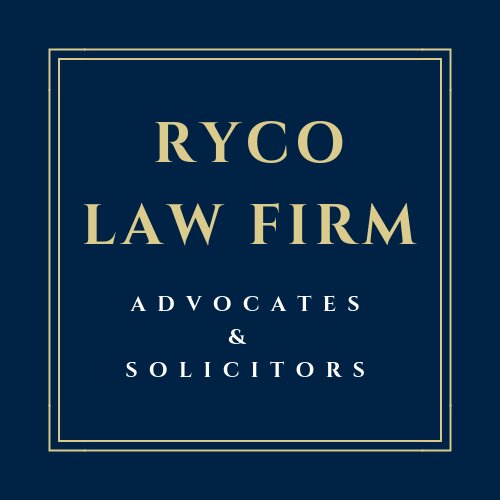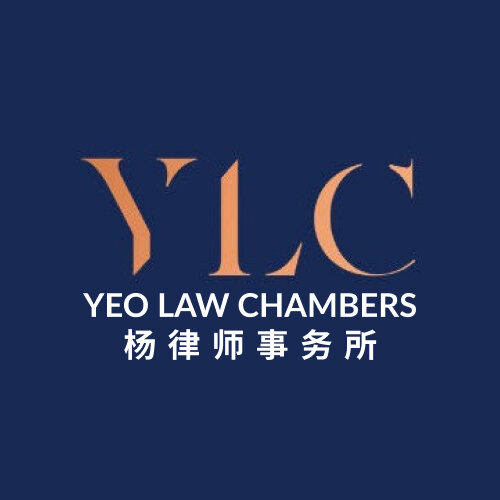Best Collaborative Law Lawyers in Malaysia
Share your needs with us, get contacted by law firms.
Free. Takes 2 min.
Free Guide to Hiring a Family Lawyer
Or refine your search by selecting a city:
List of the best lawyers in Malaysia
About Collaborative Law in Malaysia
Collaborative Law is a legal process designed to help parties resolve disputes without going to court. In Malaysia, this emerging field offers an alternative to traditional litigation by emphasizing cooperation and negotiation. Collaborative Law allows parties to work together with their lawyers to achieve a mutually beneficial resolution. It is particularly popular in family law cases, such as divorce or child custody disputes, where maintaining amicable relationships is beneficial.
Why You May Need a Lawyer
There are several situations where individuals may seek legal assistance in Collaborative Law in Malaysia:
- Divorce proceedings, where both parties prefer a mutually agreeable settlement.
- Child custody or support disputes, aiming for a solution that considers the best interests of children.
- Business disputes, where maintaining professional relationships is crucial.
- Property settlements between willing parties who prefer confidentiality and control over decision-making.
- Wills and estate planning, to ensure all interested parties agree on the distribution of assets.
Working with a Collaborative Law lawyer ensures that all parties have the guidance and framework to achieve fair, individualized agreements without resorting to adversarial court proceedings.
Local Laws Overview
In Malaysia, Collaborative Law processes are governed by various statutes depending on the type of dispute. For family law cases, the Law Reform (Marriage and Divorce) Act 1976 and the Guardianship of Infants Act 1961 are critical. The Malaysian legal system supports alternative dispute resolution methods, encouraging parties to resolve their issues through negotiation and mutual agreement. Malaysia’s commitment to collaborative dispute resolution is reflected in court practices that often recommend mediation and collaborative approaches before traditional court hearings.
Frequently Asked Questions
What is Collaborative Law?
Collaborative Law is a legal process where the parties voluntarily engage in negotiations with the help of their lawyers to reach a settlement without going to court.
How does Collaborative Law differ from mediation?
Collaborative Law involves parties working together with their respective lawyers to resolve a dispute, while mediation typically involves a neutral third party facilitating the negotiations.
Are Collaborative Law agreements legally binding in Malaysia?
Yes, agreements reached through Collaborative Law are legally binding once formalized in a written agreement, subject to the court’s endorsement, particularly in family law cases.
Is Collaborative Law suitable for all disputes?
While Collaborative Law is effective for many disputes, such as family and business disagreements, it may not be suitable if parties are unwilling to engage in open, honest negotiations.
Does Collaborative Law cost less than litigation?
Generally, Collaborative Law can be less costly than litigation because it aims to resolve disputes efficiently and avoids the expense of court proceedings.
What happens if the collaboration fails?
If Collaborative Law fails and parties cannot reach an agreement, they may proceed to litigation. Typically, the lawyers involved in the collaborative process cannot represent the clients in litigation.
How long does a Collaborative Law process take in Malaysia?
The duration varies depending on the complexity of the disputes and the willingness of the parties. It usually concludes faster than court proceedings.
Is the collaborative process confidential?
Yes, the collaborative process is confidential, and discussions are generally not admissible in court if the case proceeds to litigation.
Can I choose any lawyer for a Collaborative Law case?
You should choose a lawyer experienced in Collaborative Law, as they will be trained in negotiation and cooperation processes specific to this field.
Will Collaborative Law affect my relationship with the other party?
The goal of Collaborative Law is to preserve relationships by fostering a respectful and cooperative resolution process, unlike adversarial litigation.
Additional Resources
For further guidance on Collaborative Law in Malaysia, consider reaching out to:
- The Malaysian Bar - They offer resources and can help locate lawyers experienced in Collaborative Law.
- Family Mediation Associations - They can provide support and resources for handling family-related disputes.
- Legal Aid Centres - Offering assistance if cost is a concern, these centers may also provide information on collaborative processes.
Next Steps
If you believe Collaborative Law may be suitable for your situation, consider taking the following steps:
- Research and select a lawyer experienced in Collaborative Law.
- Prepare and gather all necessary documents related to your case.
- Consult with your lawyer to discuss your goals and expectations for the collaborative process.
- Engage with the other party to mutually agree on entering the Collaborative Law process.
- Attend all collaborative meetings with an open and willing attitude to resolve the dispute amicably.
By following these steps, you can ensure that you are well-equipped to begin the Collaborative Law process in Malaysia.
Lawzana helps you find the best lawyers and law firms in Malaysia through a curated and pre-screened list of qualified legal professionals. Our platform offers rankings and detailed profiles of attorneys and law firms, allowing you to compare based on practice areas, including Collaborative Law, experience, and client feedback.
Each profile includes a description of the firm's areas of practice, client reviews, team members and partners, year of establishment, spoken languages, office locations, contact information, social media presence, and any published articles or resources. Most firms on our platform speak English and are experienced in both local and international legal matters.
Get a quote from top-rated law firms in Malaysia — quickly, securely, and without unnecessary hassle.
Disclaimer:
The information provided on this page is for general informational purposes only and does not constitute legal advice. While we strive to ensure the accuracy and relevance of the content, legal information may change over time, and interpretations of the law can vary. You should always consult with a qualified legal professional for advice specific to your situation.
We disclaim all liability for actions taken or not taken based on the content of this page. If you believe any information is incorrect or outdated, please contact us, and we will review and update it where appropriate.
Browse collaborative law law firms by city in Malaysia
Refine your search by selecting a city.
















